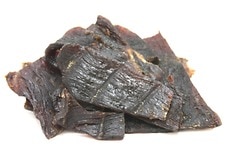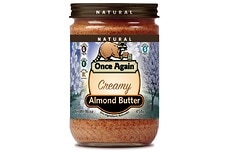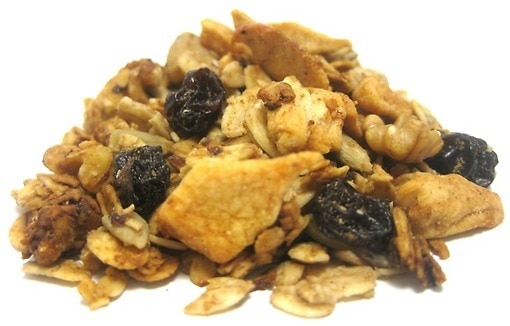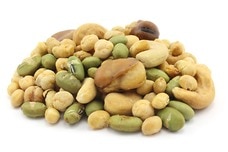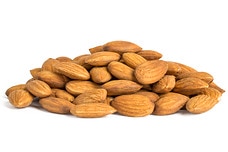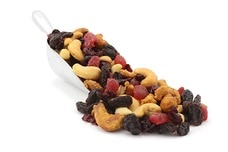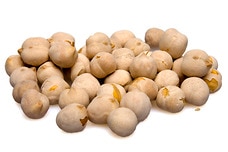Unlike weight training, which involves lifting weight to improve general health and lean muscle mass, bodybuilding is specifically geared toward massive muscle growth with an emphasis on appearance over performance.
This emphasis requires athletes in the sport of bodybuilding to retain a lean body that puts the definition of their muscles on display. To this effect, their diet must facilitate fat metabolism.
Well, hold on, this means that bodybuilding requires pursuing two contrary goals simultaneously: both increasing and decreasing body mass. In order to accomplish both goals, training is usually parsed into two phases: bulking and cutting.
But wait one minute- we all know the feeling of getting stuck in a bulking rut. It's tough to lose fat, and mass doesn't just magically convert to lean muscle. Well, if you find the strict dichotomy of bulk and cut to be a bit suspicious then you're headed in the right direction.
Snacks For Bodybuilders
Replacing "Bulk & Cut" with a Solution that Works
A healthy bodybuilding diet is more nuanced than simply alternating between periods of caloric surplus and caloric defecit. Instead, bodybuilders should focus on utilizing intermittent fasting and specialized nutrition to attain their goals.
Right now, you're probably scratching your head wondering how fasting can help you build a muscular physique. Well, I know what you're thinking- doesn't skipping a meal cause your body to cling to your calories as fat? Won't fasting make it harder to build muscle and more difficult to lose fat?
Think again.
Most anyone who has tried to build muscle knows that your muscles require rest between workouts. While some opt to rotate muscle groups, others take a day between weight lifting sessions to work on cardio and core workouts. We recommend the latter.
The reason? Taking designated periods of "rest" allows your body to get in a rhythm that supports the aims of bodybuilding. Fasting during these periods of cardiovascular workouts trains the body to rely on its fat stores for energy.
In fact, studies show that fasting on alternating days leads to weight loss in non-obese subjects. What's more is that this weight loss corresponds with increased fat oxidation and reduced fat mass in the body (Heilbronn, Smith, Martin, Anton & Ravussin, 2005).
But, How Do Bodybuilders Build Muscle With Fewer Calories?
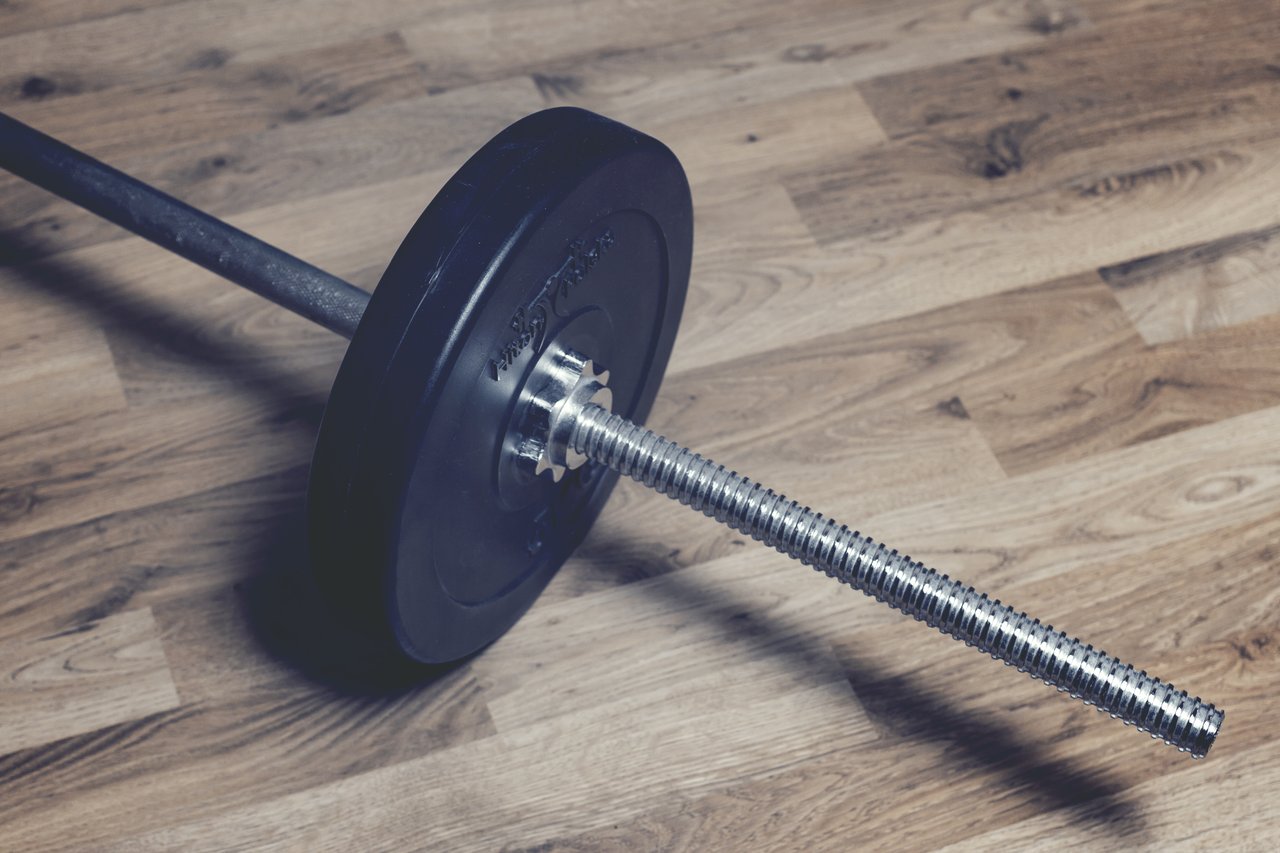
The short answer is: they don't. As stated, bodybuilders need to utilize intermittent fasting and specialized nutrition. On days focused on building muscle, it's essential to provide your body with the proper fuel, which means consuming more calories than the body burns (Lambert, 2004).
During most of bodybuilding training, the overriding goal is to stimulate muscle growth. There are two components of muscle growth: stimulation and repair, both of which can be supported and enhanced by the proper diet.
Stimulation occurs while training at the gym; repeatedly contracting muscles while under a significant weight load causes muscle fibers to become damaged. During the repair phase, tissue undergoes healing that eventually causes muscle hypertrophy, or growth (Schoenfeld, 2010).
Muscle repair depends on the availability of amino acids, which are the building blocks of protein. When you eat protein, your body breaks it down into its components, amino acids. These amino acids are rearranged and built into new proteins that make muscle tissue larger. As a result, protein is the number one concern for bodybuilders looking to increase muscle mass.
The specific guidelines for a bodybuilding diet include 55 to 60% of calories from carbohydrates, 25 to 30% from protein, and 15 to 20% from fat (Lambert, 2004). Keep in mind that because fats contain more calories, a relatively smaller amount of high-fat foods are needed to achieve this balance.
This diet should remain consistent throughout training with days of intermittent fasting keeping diet composition consistent while reducing caloric intake. In other words, on rest days, eat the same food- but less of it.
So, Which Foods Are Best Included in a Successful Bodybuilding Diet?

The Academy of Nutrition and Dietetics recommends that bodybuilders eat 1.2 to 1.7 grams of protein per kilogram bodyweight each day (Caspero, 2014). For example, a 190-pound (86 kg) bodybuilder should aim for 103 to 147 grams of protein daily. Lean protein is best, as it contains relatively less saturated fat. Consider the following protein sources for a healthy bodybuilding diet (Utah State University Extension):
- Chicken breasts (skinless)
- Ground beef
- Ground turkey
- Yellowfin tuna
- Halibut
- Salmon
- Canned tuna
- Cottage cheese
- Greek yogurt
- Sardines
- Navy beans
- Mixed nuts
- Lentils
- Peanut butter
In addition to lean protein, carbohydrates form a critical component of the bodybuilding diet. Carbohydrates are particularly useful immediately following a workout (Helms et al., 2014). This is because during an anaerobic weight training session, the body uses up stores of glycogen to fuel the workout. Eating carbohydrates following a workout replaces this storage form of glucose, aiding recovery. Effective forms of carbohydrates include fruits, oatmeal, pasta, sweet potatoes, corn, peas, or whole-wheat bread.

An effective bodybuilding diet typically involves at least five or six small, nutrient-dense meals throughout the day (Helms et al., 2014). This helps to keep energy levels high and allows the body to have enough nutrients to repair damaged muscle tissue.
To fast effectively, we recommend eating your last meal a few hours before bed and skipping the first meal of the day until your cardio workout is completed. Remember, for fasting to be an effective strategy, this meal cannot be substituted with more meals or larger portions later in the day.
Wait! Stay Safe When Building Muscle By Ensuring the Nutritional Adequacy of Meals
Although a bodybuilding diet can be healthy, many athletes focus on muscle growth to the exclusion of other health factors. Several research studies have found that competitive bodybuilders have nutrient deficiencies, poor hydration, and signs of physiological stressors (Kleiner et al., 1990; Too et al., 1998).
You can't compete if you're not well, and it's never okay to sacrifice your health for your appearance. So, no matter your goals, remember that focusing on dietary needs specific to bodybuilding does not overshadow the importance of a healthy and overall well-balanced diet.
Bodybuilding Recipes
Creating dishes that support a lean physique is a laudable endeavor- but a difficult one when presented without recourse. These recipes offer a blend of beneficial ingredients and were selected to support your endeavor to eat healthy, stay slim and build muscle.
Moringa Oatmeal Recipe
Start the day off strong with a savory source of the nutrients your body needs. Ideal for those that save their workout for later in the day, this meal offers copious amounts of vitamins and minerals in addition to starches, fiber, and protein for a well-balanced meal that tastes divine.
Ingredients: Gluten-free rolled oats, almond milk, agave or maple syrup, vanilla extract, moringa powder, pistachios, dried mulberries, unsweetened shredded coconut, chia seeds.
Total Time: 10 minutes | Yield: 4 servings
Protein-Packed Detox Smoothie Recipe {vegan}
Sometimes, a standard protein shake just doesn’t do the trick after a particularly draining workout. Our detox smoothie combines our organic hemp protein powder with other replenishing nutrients to revitalize you while contributing to your pursuit of a truly prodigious physique.
Ingredients: Almond milk, frozen banana, spirulina, hemp protein powder (optional), fresh mint, chia seeds, hemp hearts.
Total Time: 5 minutes | Yield: 2 servings
Broccoli Quinoa Salad Recipe {gluten-free}
Staying slim while adding muscle mass is no easy feat, but a fine blend of broccoli and quinoa is a brilliant way to get the vitamins your body needs without adding excessive quantities of calories and unhealthy fats to your diet. Plus, this salad offers a palpably powerful 22 grams of protein in each serving, as well as vitamin C and iron.
Ingredients: Fresh broccoli, quinoa, cucumber, cherry tomatoes, raw pumpkin seeds, sea salt, black pepper, Dijon mustard (optional), vinegar, extra virgin olive oil, maple syrup.
Total Time: 1 hour | Yield: 8 servings
Almond Truffles Recipe {gluten-free, vegan}
Even bodybuilders need a sweet treat to savor every once in a blue moon, so why not select a natural blend of healthful ingredients that results in wholly wholesome ambrosia? These almond truffles are low in both fat and calories and contain 3 grams of fiber per serving.
Ingredients: Pitted dates, almond flour, almond butter, water, flaxseed meal, freeze-dried raspberries, unsweetened shredded coconut.
Total Time: 15 minutes | Yield: 14 - 16 truffles
Recommended Snacks For Bodybuilders
He Right Snack Supplies A Portion Of Protein, But The Best Also Offer A Hearty Helping Of The Nutrients Any Well-Balanced Diet Needs. These Foods Were Selected Not Only Due To Their Rich Protein Content, But Also Because Of Their Wholesome Composition And Contributions To Your Overall Dietary Needs.

